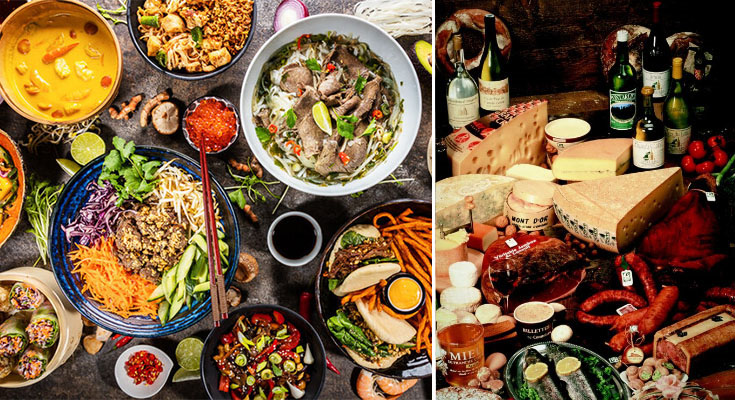The idea of food and culinary culture is rooted in social and cultural codes. Throughout the world, you can find different regional cuisines with unique styles and traditions. These distinctive regions have adapted their traditional foods to their locations. From New York to London, dim sum has developed into a grand tradition. The countless variations of roast suckling pig, Peking duck, and soup dumplings reflect the many regional variations.
Although these differences are subtle, they still have considerable cultural and social significance. Traditionally, food preparation has been passed down inside households and communities. These traditions normally involve recipes and dietary practices that are passed down through the generations. Consuming certain foods during special celebrations will help to reinforce social bonds. Studying the local cuisine is a great technique to experience a new culture and appreciate the nearby food. You could even desire to join in on several of the traditions.
A Country’s Food and Culinary Culture Are Normally Connected
A country’s cuisine reflects the history, culture, and tradition of a nation. Irrespective of whether it is a regular dish or an international preferred, the cuisine of a location might be traced back to ancient times. And even though the food itself may not be of fantastic cultural importance, it has important historical and cultural significance. Regardless of their differences, the history of food is rich using a rich history.
The value of food and cultural diversity cannot be underestimated. The selection of cultures on the planet is reflected in the diversity in the foods and culinary traditions of the persons who live in them. The foods and culinary traditions of a country reveal its culture, consuming habits, and authenticity. With advances in technology and storage, food preparation, production, and shipping, standard culinary cultures have come to be much more accessible. The history of food and cultural values is fascinating and worth exploring.
While Food and Culinary Culture are Closely Connected, They Might be Various
By way of example, the dishes of distinctive cultures are often quite comparable, but several of the approaches used to prepare them to differ from one another. The approaches utilized to prepare them to differ as well. For example, a country’s culture might favor applying implements or utilizing their fingers to eat, whilst a country’s cuisine is normally favored by the dominant ethnic group.
Though the food and cultural practices of a nation are usually traced back using time, the differences of cultures might be fairly diverse from nation to country. Having said that, the study of food within a diverse culture could be a pretty fascinating and rewarding practical experience. It could be a fun and enriching journey. It might also bring about professional possibilities within the food sector or an improved understanding of cultural history. This is especially accurate in the context of the United States.

